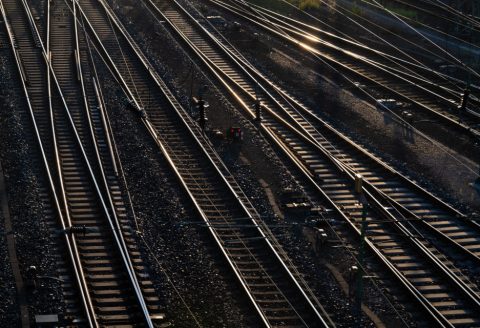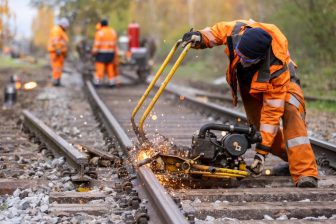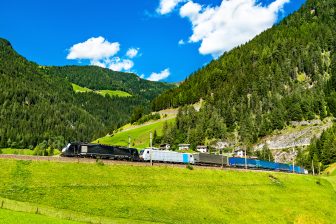
Germany launches colossal network upgrade, 40 routes renovated by 2030
Deutsche Bahn (DB) and the German Federal Ministry of Transport and Digital Infrastructure (BMDV) are about to launch an enormous infrastructure upgrade programme from 2025 until 2030. Forty critical route sections are to be renovated, some very important for rail freight transport. The long-term goal is to make German rail transport more punctual, but understandably, in the short and mid-term, traffic will be substantially disrupted due to the works.
“A big thank you goes to the federal government for its commitment to provide the necessary additional funds amounting to up to 45 billion euros to carry out the works. It is now up to us to roll our sleeves with the construction industry. However, the truth is that the enormous construction workload will be challenging for rail freight companies,” stated Richard Lutz, CEO of DB.
Six pillars
The 2025-2030 infrastructure upgrade programme is based on six main pillars that DB and BMDV have defined. First and foremost comes rehabilitating the highly congested network and expanding it into a high-performance 9.000 kilometres long network. Moreover, significant is the “targeted” expansion of existing lines and the construction of new ones to resolve persisting bottlenecks and increase capacity. Speaking of capacity, the German-wide ETCS roll-out, also part of the programme’s six pillars, could increase rail capacity by 30 per cent.
Furthermore, better capacity conditions could also be ensured via works that will target improving and increasing the number of transfer points, switches and signalling points. Last but not least comes the modernisation of several train stations, while at the same time, DB will attempt to ensure that the backlog of older investments, still not carried out, will be dealt with.
Upgrading diversion routes
As mentioned above, upgrading and renovating existing lines and building new ones will have a substantial impact on rail freight operations. That is because several routes will be closed for several months. To tackle this issue, DB says that it has developed a “high-performance transport concept” in coordination with the affected companies that will target, among other things, the upgrade of alternative routes so that they become more efficient and able to carry increased traffic.
The general renovation of the highly stressed sections of the route will begin next year on the Riedbahn between Frankfurt/Main and Mannheim, while the Hamburg-Berlin and Emmerich-Oberhausen routes will follow in 2025. Below, you can find an analytical overview of the upcoming route upgrades and when they will take place.
2025: Hamburg–Berlin, Emmerich–Oberhausen.
2026: Hamburg–Hannover (subject to further decisions), Hagen–Wuppertal–Cologne, Troisdorf–Koblenz, Koblenz–Wiesbaden, Nuremberg–Regensburg, Obertraubling–Passau.
2027: Lübeck–Hamburg, Bremerhaven–Bremen, Lehrte–Berlin, Hamm–Düsseldorf–Cologne, Frankfurt/Main–Heidelberg, Munich–Rosenheim, Rosenheim–Salzburg.
2028: Bremen–Hamburg, Nordstemmen–Göttingen, Uelzen–Stendal, Stendal–Magdeburg, Hagen–Unna–Hamm, Cologne–Bonn–Koblenz, Koblenz–Mainz, Bebra–Fulda, Würzburg–Nuremberg.
2029: Hamburg–Hannover (subject to further decisions), Bremen/Rotenburg–Wunstorf, Lehrte–Gross-Gleidingen, Bebra–Erfurt, Aachen–Cologne, Forbach–Ludwigshafen, Stuttgart–Ulm (old line).
2030: Bremen-Osnabrück, Osnabrück–Münster, Münster–Recklinghausen, Minden–Wunstorf, Weddel–Magdeburg, Kassel–Friedberg, Würzburg–Ansbach–Treuchtlingen, Mannheim–Karlsruhe, Ulm–Augsburg.




